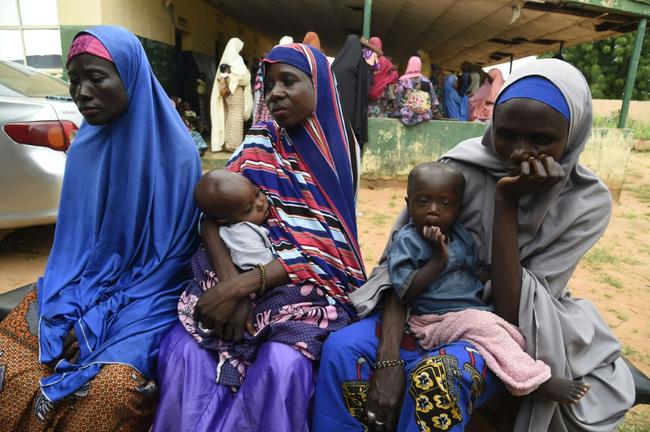Featured
Farming has become too dangerous for many, humanitarian crisis in Nigeria

Maryam Aliyu and her six children were lying next to each other fast asleep when gunmen broke into their home in northwest Nigeria.
“Suddenly I saw light all over me. I came out of the mosquito net and there were four men with AK-47s,” the 25-year-old said.
Gangs of heavily armed criminals known locally as bandits have terrorised northwest and central states of Africa’s most populous nation for years.
When gunmen attacked her village of Danjiro in Sokoto state’s Goronyo district last month, Aliyu had only 400 naira ($1), as was the case most days.
“They even stole the wrapper on which my children were sleeping,” said Aliyu, tears rolling down her cheeks.
“They usually try to rape us,” said the 35-year-old mother of five, who survived a separate attack in Goronyo.
– Hunger and insecurity –
More than 1,600 people have arrived at the camp in recent weeks, according to UNICEF, in desperate need of food, protection, shelter and clothes.
“We sometimes sleep without having had food that day.”
“What we are watching in the northwest is a situation that will soon blow up in our faces,” said Maulid Warfa, chief of UNICEF’S field office.
Yet the region attracts much less attention than the country’s northeast, where jihadist groups are fighting a 12-year conflict that has displaced two million people.
“If donors and the international community are not interested in doing what needs to be done today, in a few years we will be dealing with a situation that a lot of people will regret,” he said.
At a nutrition clinic supported by UNICEF in Sokoto North, outside the city, more than 50 women with small children waited to receive a small pack filled with nutrient paste designed for acute malnutrition.
“We hid in the crops and when day broke, we came here,” she said.
Her 14-month-old boy’s health has deteriorated. “I think it’s hunger,” she said.
And more than 80,000 additional people have fled to neighbouring Niger over the past two years.
Sokoto State’s security commissioner Garba Moyi told AFP that the state “government does everything possible” about the bandits, “including sitting with them to talk”.
For Moyi, more help is needed from the federal government.
Nigeria has launched numerous military operations in the region, and just last week said it had “neutralised” nearly 300 bandits. But violent attacks have continued.
He told AFP that during his latest abduction he was kept in a forest for several days, blindfolded, chained to a tree.
“They would hit my legs and my back like a cow,” he said, showing marks of his beating.
Since late last year, bandits have increasingly turned to mass kidnappings of school children.
Across the northwest, a fertile agricultural region almost the size of Britain and home to more than 35 million, farming has also become too dangerous for many.
“When young people lose hope, when they are frustrated, when they see no future… the only option for many of them is actually to take up guns and become bandits themselves.”






